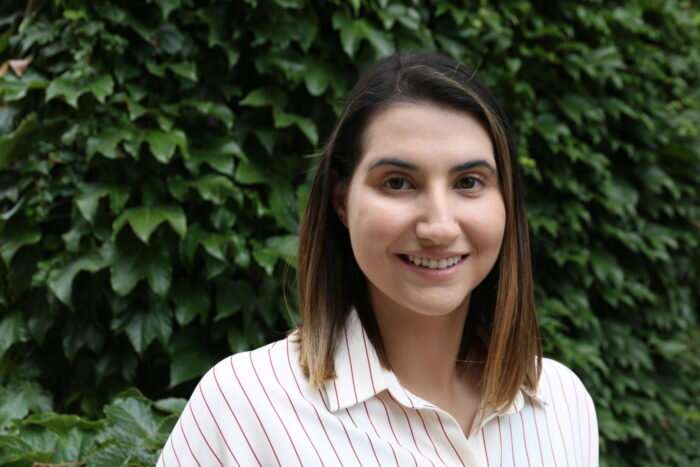Study targets graduate student stress

Rebecca Fried readily acknowledges her doctoral research addressing stress among graduate students was, well, stressful. "The irony was never lost on me."
Even as she dug into her studies, sweated through deadlines and edited her dissertation, Fried knew her postgraduate peers were going through something similar.
"Mental health is not an issue just for undergraduate students on campus; it's also an issue for graduate students. But graduate students don't tend to get studied a lot," said Fried, BHSc'12, MSc'14, who will convocate with her Ph.D. in October.
In a newly published study, Fried uncovered the benefits of a peer-coaching program focused on mentorship, motivational interviewing and life coaching among graduates—leading her to suggest the idea could be expanded.
Her paper, "Breaking Grad: Building Resilience Among a Sample of Graduate Students Struggling with Stress and Anxiety via a Peer Coaching Model," appears in the International Journal of Evidence Based Coaching and Mentoring.
Study participants—all Western students—attended a full day of training and then took part in four sessions per month, over eight months. They alternated between being a coach and receiving coaching for an average of 28 sessions each. As receivers, they learned resilience and mindfulness techniques. As coaches, they learned active-listening skills and how to guide questions and answers without trying to 'fix' the receiver.
Participants included only full-time postgraduate students experiencing stress and anxiety that interfered with daily living, but were not receiving counseling/therapy or taking anti-anxiety medication.
By the end of the program, students credited the program with helping them identify and manage their stresses. The program had provided them with social supports; the tools and techniques helped them take control over their own health and well-being. They also learned more about how, when and where to seek mental-health support.
Only 11 students took part in the program—too few to produce quantitative results. But the qualitative responses suggest the program should be tried in a larger sample size or that the methodology be integrated into existing wellness services that target postgraduate students, Fried said.
"It's not necessarily getting rid of programs we have, but about restructuring to what we could have (and shifting) towards peer mentorships."
Fried has experienced stresses both as an undergraduate and as a graduate student and said the two deserve to be treated differently.
Graduate students often face more isolation, and sometimes less structure and less regular feedback. "It just feels like it's just you and your paper. You're dealing with funding. You're often working as a teaching assistant in addition to your studies."
Between degrees, Fried also earned certification as a life coach using these techniques and strategies.
"Having to learn to navigate my own anxiety and having to deal with all the stressors that had come up, I wanted to do something that had an impact in an empirical way."
More information: Breaking Grad: Building Resilience Among a Sample of Graduate Students Struggling with Stress and Anxiety via a Peer Coaching Model—An 8-Month Pilot Study, International Journal of Evidence Based Coaching and Mentoring, 17 (2), pp.3-19. DOI: 10.24384/sa09-av91
Provided by University of Western Ontario





















